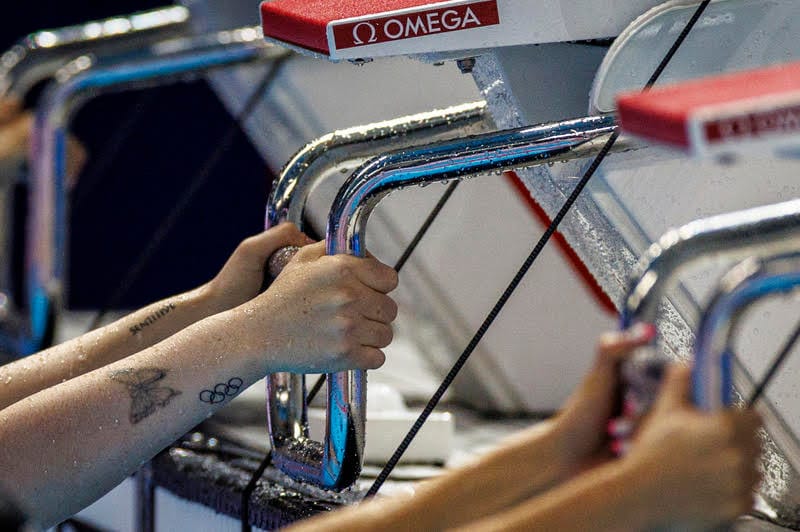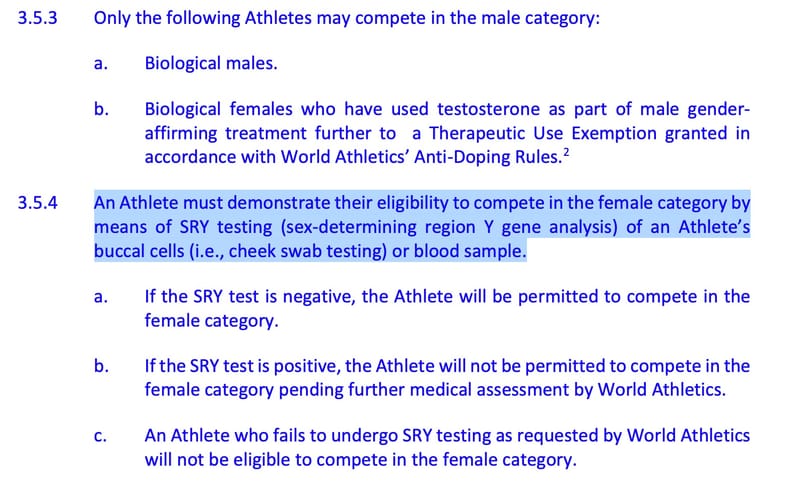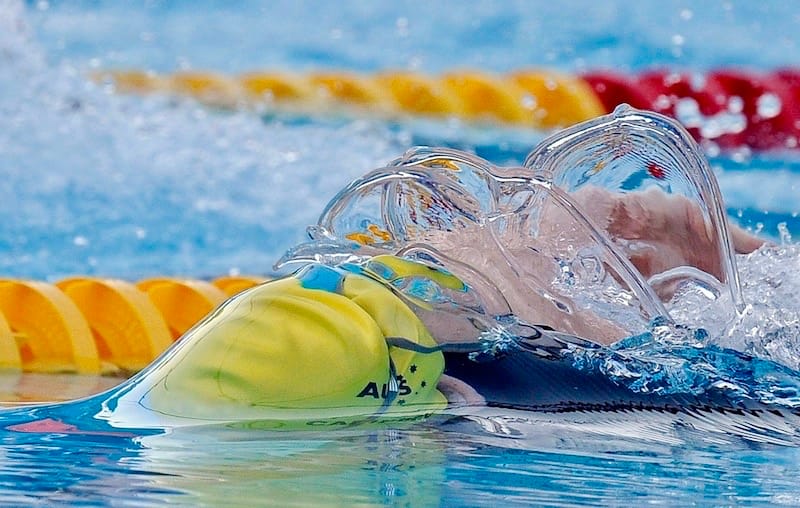Stakeholders Angry Over Swim England 'U-Turn' On Historic Complaints
Heartened by a shift in direction at Swim England after the association adopted independent reform recommendations, some now fear that an amended policy backtracks on moves that had aimed to ensure those in power were held to account for past failings
Several groups of stakeholders have contacted State of Swimming to express anger at a change to Swim England’s policy on historic complaints that they say “backtracks” on the governing body’s recent reform commitments.
The new measure gives Swim England power to veto historic complaints against itself from being taken forward. That makes "a mockery” of the promise to provide an independent channel to hear complaints about the organisation’s past failings, the stakeholders claim.
Swim England responded by saying: “As a governing body, we must have the ability to triage complaints before deciding the appropriate course of action."
Fears Swim England will “protect those in positions of power or influence”
It is just over a year since Swim England introduced a new complaints policy in July 2024 that offered everyone with serious complaints against the governing body the right to have them looked at independently.
The policy was introduced following the critical “Listening Report” by independent firm the Behavioural Architects, which highlighted stakeholder fears that Swim England would “continue to find ways to protect those in positions of power or influence”.
Research for the report - conducted as part of Swim England ‘s Heart of Aquatics programme – found that only 32% of thousands who responded to a survey trusted Swim England. Complaint handling came in for particular criticism, with a mere 11% agreeing that the governing body handled complaints well.
One of the report’s recommendations recommended that Swim England should:
“Provide an avenue independent of Swim England for raising safeguarding concerns and complaints, particularly past and present complaints against Swim England itself, ensuring those who have not come forward can still do so and harmful behaviours are followed up where relevant.” (Bold added for emphasis)
Sport England made implementing this and other recommendations a condition of future funding, and Swim England committed to the recommended reforms.
“Effectively unaccountable” for past failings
However, a year on, the governing body has amended the policy to give itself a right to veto any investigation of complaints over matters that happened more than three months before any complaint was made. That, according to one expert, makes governors “essentially unaccountable” for past failings.
The change appears in an amended version of the complaints policy dated July 2025, which states:
“For Complaints relating to incidents occurring more than ninety days ago, we will determine, at our discretion, whether it would be appropriate to investigate and respond to such a complaint giving due consideration to relevant principles, including but not limited to: the seriousness of the Complaint;
the number of individuals affected or potentially affected;
the proportionate use of our resources; and
the importance of the issues raised for aquatics, our members and other participants.
If we decide not to investigate and/or respond to your complaint, we will write to you with our reasons, which would be the end of the matter.” (Bold added for emphasis)
Stakeholders told State of Swimming that they feel “betrayed” and “flabbergasted” by what one called a “disgraceful move”.
One, who had intended to use the policy to raise concerns about Swim England’s failure to investigate serious safeguarding concerns, said:
“This change gives Swim England the green light to sweep years of failures under the carpet. To me it sends a clear message: they’re not really interested in accountability for the past.”
Another noted that those affected by some of the matters that led to the Listening Report being an essential part of a reform process, had been heartened to read the words chosen carefully by the authors when they wrote "particularly past and present complaints against Swim England itself". Now, that same stakeholder says:
“We lobbied so hard for an independent system, and were so excited and happy when we saw the recommendation. We really thought we were finally going to get someone to look into whether Swim England failed our children and that lessons would be learned. But hearing of this I burst into tears. We’ve had to delay our complaint for legal reasons and now we think - is it even worth bothering?
I trust them even less than I did before. The culture the [Listening Report] referred to seems as alive as ever”.
In response to State of Swimming, Swim England noted another part of its policy, which states that requests for a review of a complaint "will be forwarded to an external, independent person or body to consider whether it should be considered externally of Swim England" based on a number of factors, including "proportionate use of our resources" and "the importance of the issues raised for aquatics, our members and other participants".
That clause, however, only applies if Swim England has already chosen to accept the complaint and made a formal “Decision” on it which the complainant then wants to appeal; it does not apply when Swim England has invoked the new veto clause to refuse even to look at an historic complaint – an action which the policy makes clear (“end of the matter”) is itself shielded from any scrutiny.
Professor Sue Arrowsmith KC (Hon), who has provided voluntary assistance to a number of those who have tried to get their safeguarding and other complaints fairly looked at, also said she was “very disappointed” by the change.
With decades of experience in complaints systems and governance, including serving as an international judge, she is also a former expert to the International Partnership against Corruption in Sport. Professor Arrowsmith told State of Swimming:
“This does rather make a mockery of the concept of an independent system for past complaints as recommended by the Listening Report. Yes, under the amended policy victims of Swim England still in theory have a system to get a historic complaint looked at independently, at least on an appeal – but only if Swim England chooses to allow the complaint to proceed in the first place!
A properly independent system means that the independent person decides whether a complaint is important and credible enough to look into at all. You don’t give that filtering job to the organisation being complained about. That creates an obvious risk of abuse in any organisation - of filtering out complaints to protect reputation, cronies, or those still in power, on the basis of spurious reasons.”
“Faith in the new CEO”; “alarm bells” over complaint handling
The CEO of Swim England is Andy Salmon, who was appointed to succeed Jane Nickerson. Many current board members were in positions of authority at the English regulator during her tenure as CEO, when many of the contentious issues occurred that led to the concerns expressed in the "Listening Report", and its key recommendation to provide independent accountability of the organisation over historic matters.
No board members resigned as a result of that report, making accountability for any role they might have had in past events a matter of current interest and concern.
Professor Arrowsmith added:
“I personally have a lot of faith in the new CEO, Andy Salmon and his commitment to doing the right thing. There have been lots of valuable reforms in the last year.
However, this U-turn in the complaints policy rings alarm bells with me about the commitment of the organisation as a whole to cultural change when it comes to complaint handling and ensuring accountability – including of those still in power.
No-one is suggesting that Swim England should invest huge resources looking in detail at every historic case. But the decision on what to investigate in full cannot simply be left to the accused party itself. Victims of Swim England itself surely deserve a right to a proper independent ruling on their serious complaints, similar to that available under the Regulations for complaints against clubs, counties, regions and coaches etc. That is fundamental not just for justice for victims but for creating trust, ensuring necessary action is taken, and learning lessons.
Why is Swim England the only member of the swimming community that gets a veto over whether past complaints against itself get looked at?
The Listening Report made it very clear that it was unacceptable to have decisions on historic complaints being made by anyone inside the organisation, even if not involved themselves in the issues complained of - that such decisions MUST be made by a body external to Swim England altogether. To provide for an internal veto, with no right of external appeal, totally undermines that principle”.
Swim England has a different view. A spokesperson told SOS:
“As a governing body, we must have the ability to triage complaints before deciding the appropriate course of action. If one or more individuals are the subject of a complaint, then they would be recused from any involvement in the consideration of that complaint.”
On stakeholder trust Swim England said:
“Since the publication of the Listening Report, we have received consistent encouragement and constructive support from stakeholders who recognise the seriousness with which we are addressing its findings. We know that trust is not rebuilt overnight, and we do not take it for granted. However, the feedback we continue to receive tells us that stakeholders value the progress being made, even while recognising there is more still to do.”
Future use of veto powers?
Current or imminent historic complaints against Swim England reported to State of Swimming include failing to investigate serious safeguarding concerns, extensive loss of safeguarding records by Swim England, negligently failing to act on child protection recommendations, misinterpreting safeguarding rules, and covering up of previous complaints.
Swim England has launched its own historic review of safeguarding cases. However, State of Swimming understands that this excludes cases from the most recent years altogether, and might only look at Swim England’s own files.
Those affected believe that would be inadequate for their complaints and may result in misleading conclusions. They also worry whether they will ever get to see or challenge any conclusions.
Professor Arrowsmith noted:
“No-one can know whether allegations of historic failings by Swim England are well-founded or not without a proper investigation. But whether to investigate, in full, particular complaints about its own conduct simply cannot be left to Swim England itself to decide, especially when trust has been so low.”
As things stand, it now remains to be seen if stakeholder fears over "protecting those with power and influence" - as expressed to the Listening report - are justified.
That will depend on just how Swim England uses its power of veto on historic complaints.
All eyes on that.





